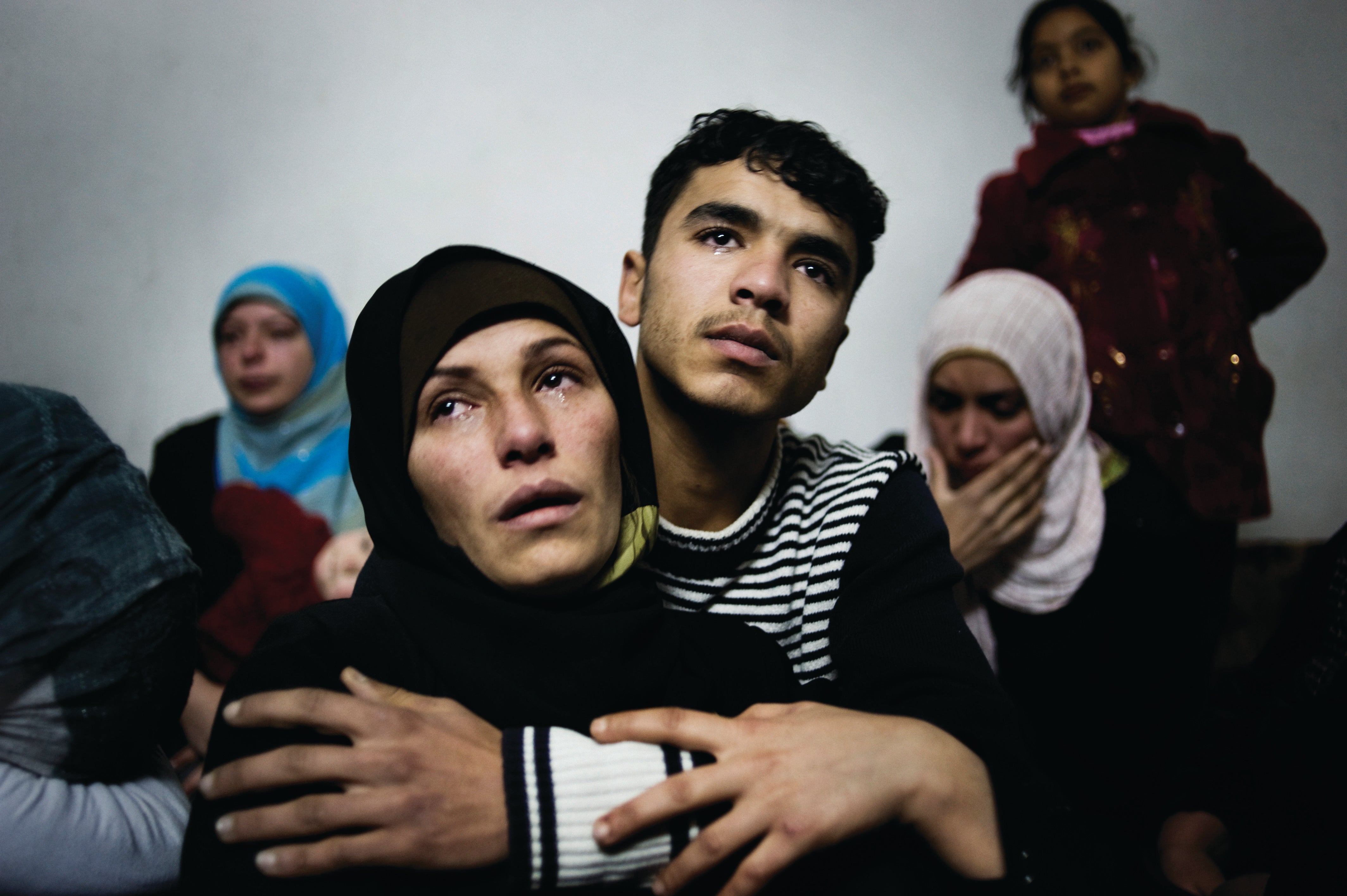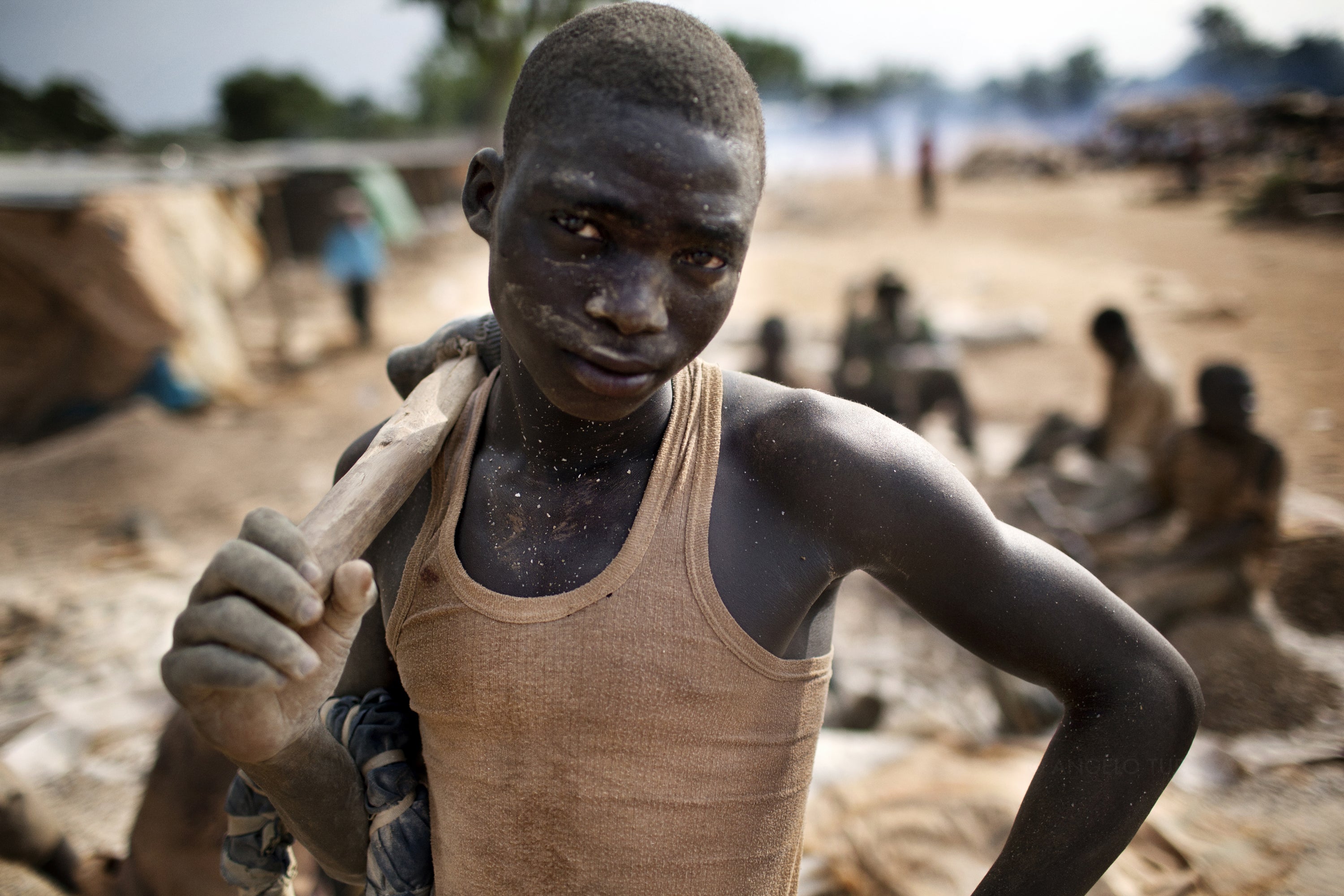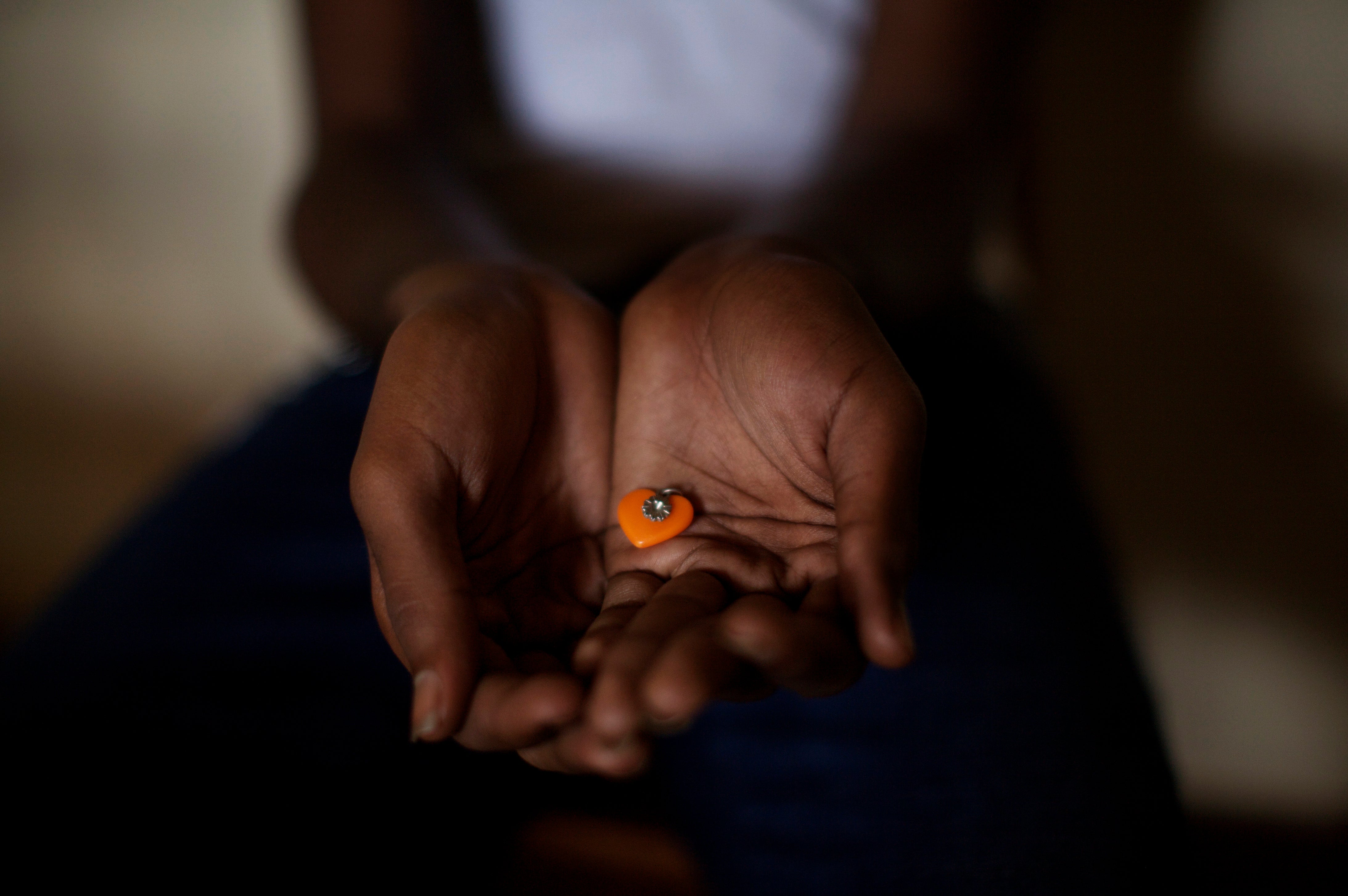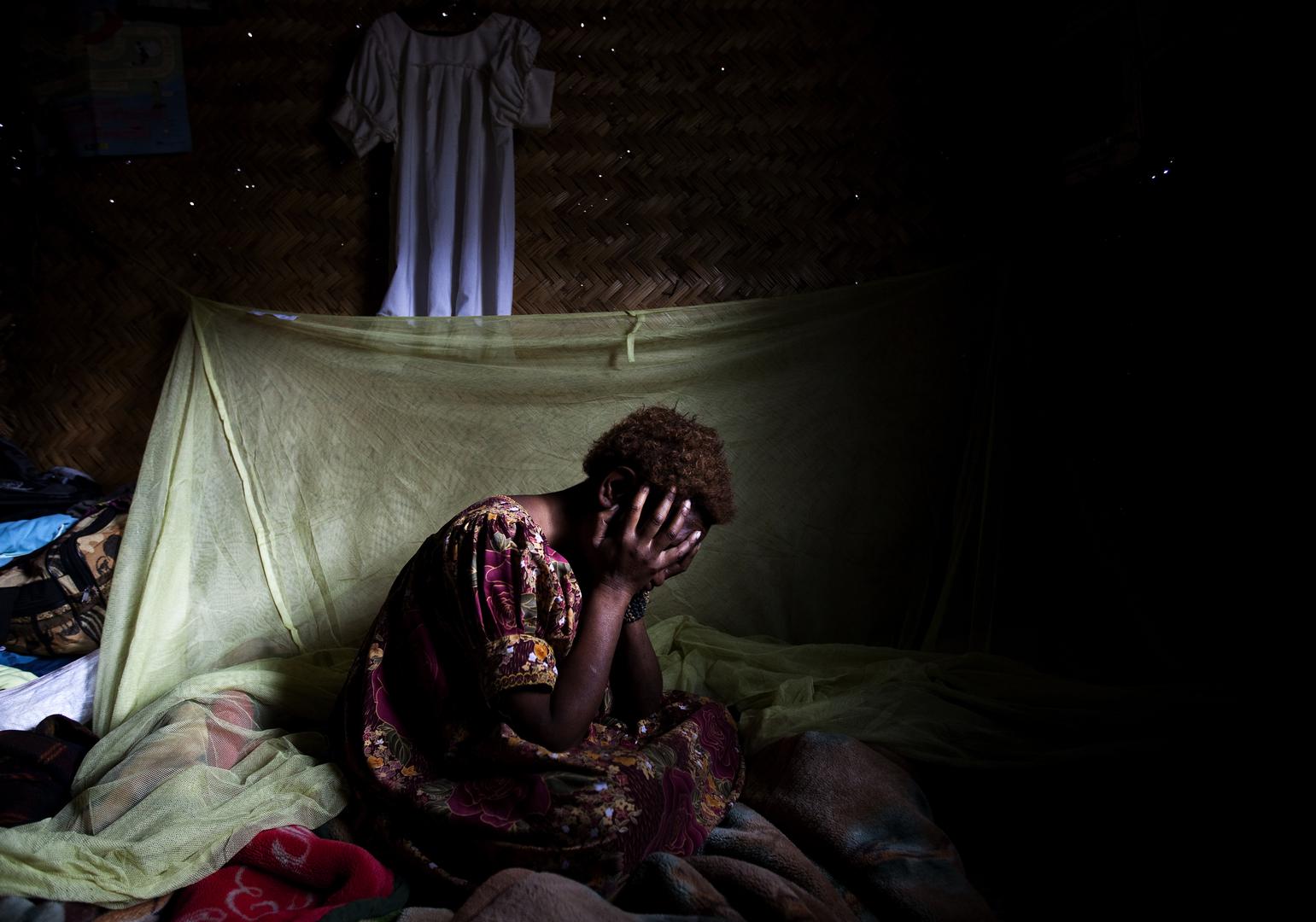The Vietnam government systematically suppresses freedom of expression, association, and peaceful assembly, and persecutes those who question government policies, expose official corruption, or call for democratic alternatives to one-party rule. Police harass and intimidate activists and their family members. Authorities arbitrarily arrest activists, hold them incommunicado for long periods without access to legal counsel or family visits, subject them to torture, and prosecute them in politically pliant courts that mete out long prison sentences for violating vaguely worded national security laws.
In 2012, police used excessive force in response to public protests over evictions, confiscation of land, and police brutality.
Land confiscation continues to be a flashpoint issue, with local farmers and villagers facing unjust confiscation of their lands by government officials and private sector projects. Those who resist face abuses from local authorities.
Following a series of arrests of well-connected tycoons and managers of state-owned companies, the Party Central Committee held its sixth plenum in October. During the session, factions led by Prime Minister Nguyen Tan Dung and by Communist Party Secretary General Nguyen Phu Trong and President Truong Tan Sang vied for control of the state’s political and economic machinery in a still ongoing power struggle. However, neither faction has voiced or otherwise demonstrated a commitment to protect human rights.
Vietnam has stated that it will seek a seat on the United Nations Human Rights Council (HRC) for the 2014-2016 term.
Freedom of Expression, Assembly, and Information
On the surface, private expression, public journalism, and even political speech in Vietnam show signs of enhanced freedom. This trend was especially evident in a surge of criticism of Prime Minister Nguyen Tan Dung during the course of the 6th Plenum of the Party Central Committee in October, and a high-profile call for his resignation issued from the floor of the National Assembly in November. However, there continues to be a subcurrent of state-sponsored repression and persecution of individuals whose speech crosses boundaries and addresses sensitive issues such as criticizing the state’s foreign policies in regards to China or questioning the monopoly power of the communist party.
The government does not allow independent or privately owned media outlets to operate, and exerts strict control over radio and TV stations, and publications. Criminal penalties apply to those who disseminate materials deemed to oppose the government, threaten national security, reveal state secrets, or promote "reactionary" ideas. The government blocks access to politically sensitive websites and requires internet cafe owners to monitor and store information about users’ online activities.
In April, the government revealed a draft Decree on Management, Provision, and Use of Internet Services and Information on the Network. As drafted, the decree will outlaw posting internet content that opposes the Vietnam government, national security, public order, customs and traditions, national unity, offends the reputation of an individual or group, or transgresses a number of other ill-defined areas of concern. The decree would also require domestic and foreign companies to filter whatever content the government finds objectionable. The National Assembly had not yet begun considering the draft at this writing.
In September, Prime Minister Nguyen Tan Dung ordered the Ministry of Public Security to target blogs and websites not approved by the authorities, and to punish those who create them.
On August 5, authorities forcibly dispersed peaceful marchers in Hanoi protesting Chinese foreign policies on sovereignty over the Paracels and Spratly islands. Authorities temporarily detained more than 20 protesters for disrupting public order. Yet on the same day, authorities did not interfere with over 100 people on bicycles participating in Vietnam’s first public demonstration for lesbian, gay, bisexual, and transgender (LGBT) rights.
Repression of Rights Activists
During 2012, the Vietnam government used vaguely defined articles in the penal code that criminalize exercise of civil and political rights to send at least 33 activists to prison and arrest at least another 34 political and religious advocates. At least 12 other rights campaigners detained in 2011 were still being held, awaiting trial at this writing.
Rights activists continue to suffer from intrusive police surveillance, interrogation, monetary fines, and restrictions on domestic and international travel. Police use temporary house arrest to prevent them from participating in protests or attending trials of other bloggers and activists. In a number of instances in 2012, unidentified thugs have assaulted dissidents and police have done little or nothing to investigate.
In a prominent, internationally monitored trial that lasted only several hours on September 24, a court convicted the country’s three most prominent dissident bloggers—Nguyen Van Hai (also known as Dieu Cay), Ta Phong Tan, and Phan Thanh Hai (also known as Anhbasg)—for violating article 88 of the penal code (conducting propaganda against the state). The court sentenced them to 12, 10, and 4 years in prison respectively. All are founding members of the Club for Free Journalists. United States President Barack Obama, US Secretary of State Hillary Clinton, and European Union High Representative Catherine Ashton have all raised concerns about their cases on different occasions during the year.
Authorities also widely used article 88 to silence other bloggers and rights activists. In October, musicians Tran Vu Anh Binh and Vo Minh Tri (also known as Viet Khang) were sentenced to a total of 10 years in prison for writing songs critical of the regime. In August, bloggers Dinh Dang Dinh and Le Thanh Tung were sentenced to six and five years in prison respectively. In June and July, labor rights activist Phan Ngoc Tuan in Ninh Thuan province and land rights activists Nguyen Kim Nhan, Dinh Van Nhuong, and Do Van Hoa in Bac Giang province were sentenced to a total of eighteen-and-a-half years in prison for conducting propaganda against the state for storing and distributing pro-democracy documents and leaflets. In March and May, five Catholic activists—Vo Thi Thu Thuy, Nguyen Van Thanh, Dau Van Duong, Tran Huu Duc, and Chu Manh Son—were jailed for a total of 17 years and 9 months for distributing pro-democracy leaflets, reduced to the total of 16 years and 3 months on appeal.
In March, the People’s Court of Go Dau district in Tay Ninh province sentenced rights activists Ho Thi Hue and Nguyen Bich Thuy to three years each in prison for participating in protests against land confiscation in Tay Ninh province. Their sentences were reduced to two years each on appeal in August. In April and June, land right activists Nguyen Van Tu in Can Tho and Nguyen Van Tuan in Ba Ria-Vung Tau were sentenced to two and a half years and four years respectively in prison for “abusing rights to democracy and freedom to infringe upon the interests of the State.” Both were accused of helping local people file petitions against land confiscation. Nguyen Van Tuan’s sentence was reduced to two years on appeal in August.
Freedom of Religion
The government restricts religious freedom through legislation, registration requirements, and harassing and intimidating unsanctioned religious groups, including independent Protestant home churches, and individuals and congregations of Hoa Hao Buddhists, Cao Dai, the Unified Buddhist Church of Vietnam, and Falun Gong.
Religious groups must register with the government and conduct their operations under the direction of government-controlled management boards. The authorities do generally allow government-affiliated churches and pagodas to hold worship services. However, local authorities routinely harass and intimidate religious communities, especially unregistered ones, when they take up politically disfavored issues including land rights and freedom of expression; when they are were popular among groups that the government considers to be potentially disaffected, such as ethnic minorities with a history of resistance against central rule and assimilation policies; or when they simply refuse to conform to state-sanctioned religious organization.
In February and March, Phu Yen province police arrested at least 18 members of a Buddhism-based religious group that refers to itself as the Council for Public Law and Affairs of Bia Mountain. They face charges under penal code article 79 for “activities aiming to overthrow the people’s administration.” At this writing, the 18 members of the group were in police detention in Phu Yen province, awaiting trial.
In Gia Lai province in March, Pastor Nguyen Cong Chinh was sentenced to 11 years in prison for “undermining national unity” in violation of article 87 of the penal code. The same month, eight ethnic Hmong Protestant activists from Muong Nhe district in Dien Bien were each given sentences of between two to two-and-a-half years in jail for “disrupting security” after they participated in a mass protest in Muong Nhe in May 2011.
In April and June, three other Protestant activists, Kpuil Mel, Kpuil Lễ,and Nay Y Nga, were sentenced to a total of 22 years in prison for transgressing article 87. All three were accused of practicing Dega Protestantism, which is outlawed by the state.
In May, three ethnic Montagnard activists, Runh, Jonh, and Byuk, were arrested in Gia Lai for being affiliated with the unregistered Ha Mon Catholic group and charged with “undermining national unity” according to article 87.
Police in An Giang prevented members of the unregistered Pure Hoa Hao Buddhist Association from gathering to commemorate key events, including the anniversary of the disappearance of the group’s founder Huynh Phu So. Hoa Hao activist Bui Van Tham was sentenced to 30 months in prison for “resisting officials in the performance of official duties.”
In June and July, local authorities sought to prevent Catholic priests from performing masses at the private homes of Catholic followers in Con Cuong and Quy Chau districts in Nghe An province. In both areas, local Catholics have filed multiple requests to authorities to form and register new parishes without success.
Criminal Justice System
Police brutality, including torture in detention and fatal beatings, continued to be reported in all regions of the country in 2012. At least 15 people died in police custody in the first 9 months of the year, according to state-controlled media.
Vietnamese courts lack independence since they are firmly controlled by the government and the Vietnam Communist party, and trials of political and religious dissidents fail to meet international fair trial standards. Police intimidate, and in some cases detain, family members and friends who try to attend trials or publicly display dissenting views during court proceedings.
Vietnamese law continues to authorize arbitrary “administrative detention” without trial. Under Ordinance 44 (2002) and Decree 76 (2003) persons deemed threats to national security or public order can be placed under house arrest, involuntarily committed to mental health institutions, or detained at “re-education” centers.
In June, the National Assembly passed the Law on Handling of Administrative Violations that will finally halt the practice of sending sex workers to administrative detention in the so-called “05 centers” where they often suffer abuse. Human rights observers welcome this rare example of a concrete and positive institutional reform.
The policy of detention of drug users, however, remained unchanged. The mainstay of Vietnam’s approach to drug treatment remains detention in government centers where detainees are subjected to so-called “labor therapy.” Some 123 centers across the country hold around 40,000 people, including children as young as 12 years old. Their detention is not subject to any form of due process or judicial oversight and routinely lasts as long as four years. Infringement of center rules—including the work requirement—is punished by beatings with truncheons, shocks with electrical batons, and imprisonment in disciplinary rooms where detainees are deprived of food and water. Former detainees report that authorities forced them to work in cashew processing and other forms of agricultural production, including potato or coffee farming, construction work, and garment manufacturing and other forms of manufacturing.
Key International Actors
Vietnam’s complicated relationship with China plays a key role in domestic and foreign affairs. Hanoi pledges friendship with China, but domestically must respond to criticism that it fails to counter China’s aggressive behavior in the disputed Spratly and Paracel Islands. Internationally, the government has increased cooperation with the US, the EU, Russia, India, Japan, and neighboring Association of Southeast Asian Nations (ASEAN) to counter-weight to China’s growing influence.
The EU and Vietnam launched negotiations on a comprehensive free trade agreement in June. Two rounds of the EU-Vietnam human rights dialogue took place in January and October.
The relationship between Vietnam and the US continues to grow. The US is Vietnam’s largest export market, and the June visit of US Defense Secretary Leon Panetta symbolized the growing ties between the two countries’ militaries. The US and Vietnam are also negotiating a Trans-Pacific Partnership free trade agreement. However, during a July visit to Vietnam, Secretary of State Hillary Clinton publicly raised serious concerns about Vietnam’s poor human rights record, and US policy makers indicated that failure to improve human rights could impose limits on the closeness of the relationship between the two governments.
Starting in 2013, Le Luong Minh, Vietnam’s deputy foreign minister, will start his five- year term as secretary-general of ASEAN, greatly increasing Vietnam’s influence in this regional bloc.




